|
This Q&A with prolific author Rotimi Ogunjobi is the second part of a special 2-part feature on the literary titan. The first part, titled Versatility and Vision… provides an in-depth look into the writer’s background. It was published in the AI Literary Chat Salon here at Bright Skylark and you can check it out it out by clicking here. The interview with Ogunjobi begins now: AI Literary Chat Contributor: You have been actively involved in various forms of writing, from novels to plays and poetry. How do you perceive the role of literature in addressing the pressing political and social issues of our time, particularly within the context of Nigeria and the wider world? Rotimi Ogunjobi: As a Nigerian author, I view literature as a powerful tool for addressing pressing political and social issues both in Nigeria and on a global scale. Literature has the unique ability to engage readers on a deep and emotional level, allowing them to connect with complex issues in a way that is both thought-provoking and empathetic. In the context of Nigeria, a country with a rich and diverse cultural heritage, but also facing a myriad of challenges, literature plays a crucial role in several ways. Among other factors, it helps raise awareness concerning important issues, it promotes dialogues, documents history and supports cultural preservation all at the same time that it inspires change. AI LCC: And in what way would you say this is significant in the larger world community? RO: On a wider global scale, literature from Nigeria and other parts of Africa contributes to a more comprehensive understanding of the continent's complexities. It challenges stereotypes and misconceptions and highlights the rich tapestry of African life, culture, and history. In essence, literature has the power to be a catalyst for change, a source of education and enlightenment, and a means of preserving culture and history. I believe it is my duty to continue using my craft to address pressing political and social issues, share the stories of my people, and contribute to a more informed, empathetic, and connected world. AI LCC: Your literary career has spanned several decades, and you’ve seen significant changes occur in the publishing industry. How have these changes influenced your approach to writing, publishing, and connecting with readers? RO: Traditional publishers in Nigeria focus mainly on educational content, primarily because the recreational reading culture is not quite encouraging. Even the small publishers of fiction books strive to get their products into the school reading lists just to be able to make a bit of profit... AI LCC: So how did the priorities of traditional publishers affect your choices and processes? RO: As most of my books have been self-published, some of the key ways which changes in the industry have shaped my literary journey involved such events as the development of technology and digital publishing, the global reach made possible by the internet, genre diversity, and social and political engagement. These have all had strong impacts on my literary processes. When it comes to genre diversity in particular, the evolving publishing industry has allowed me to explore various literary forms, from novels to plays, poetry, children's books, and folklore collections. This diversity not only keeps my writing fresh and exciting but also caters to different age groups and interests, making my works appealing to a broader range of readers. AI LCC: Translations of your works into multiple languages have undoubtedly broadened your readership. Could you tell something about how this multilingual approach contributes to cross-cultural understanding and the dissemination of African narratives? RO: Indeed, facilitating the translation of my works into multiple languages has been a deliberate and important part of my literary journey as a Nigerian author. I have been able to achieve this mainly through a revenue sharing translator community. This multilingual approach plays a significant role in fostering cross-cultural understanding and the dissemination of African narratives in several ways. Africa is a continent with incredible linguistic diversity, and each language represents a unique cultural perspective. By translating my works into multiple languages, I aim to break language barriers and make my stories accessible to a wider African audience. This helps in preserving and celebrating the richness of African cultures and languages. Translation also allows my stories to transcend geographical and linguistic boundaries, reaching a global audience that may not be proficient in the original language of the work. This, in turn, contributes to a more accurate and diverse representation of African voices in the global literary canon. In addition, translations help break down stereotypes, have significant educational value, and can serve as a kind of cultural diplomacy. All of these promote a more inclusive and interconnected global literary landscape, which is something I am committed to continuing. AI LCC: The different genres into which you’ve ventured include children's books and African folklore collections. How does your background in engineering inform your creative process when crafting stories for younger audiences? RO: …Engineering emphasizes precision and attention to detail. When writing children's books, I think I unconsciously apply this mindset to the structure of the story. I carefully plan the plot, pacing, and character development to ensure that the narrative flows smoothly and engages young readers effectively. It is [also] true that engineers are trained to solve complex problems systematically. This skill set is invaluable when creating stories that need to convey moral lessons or address important issues for children. I approach these challenges methodically, ensuring that the message is clear and relatable. It is also true that engineers are trained to consider cause-and-effect relationships and logical sequences. This skill helps me create coherent and engaging narratives in children's books. Young readers appreciate stories that make sense and follow a logical progression. Not that the foregoing define my writing though. The primary objectives of my children's books are either to teach a memorable moral lesson or to make the reader laugh. I feel great if the story does both. I love being able to engage young readers in a way that encourages their curiosity, problem-solving abilities, and critical thinking while immersing them in the rich world of storytelling. AI LCC: In your extensive body of work, you've authored plays and even produced documentary films based on your narratives. How do you believe the transition from written word to visual medium impacts the way your stories are received and understood by audiences? RO: It is my hope that the transition from the written word to the visual medium, such as producing documentary films based on my narratives, will have a significant impact on the way my stories are received and understood by audiences. It is an expensive medium which I confess I am not at all financially prepared to fully engage. Regardless, I think first of the expected result and believe that the means will show up somehow. It is all we can do as artists. Transition from written word offers unique and powerful ways to engage with the narratives and to enrich the audience's experience. The medium itself can enhance readers' connections to the story, broaden its reach, and provide a deeper understanding of the themes and cultures portrayed… A visual medium often involves collaboration with filmmakers, actors, and production teams. This interdisciplinary approach can bring fresh perspectives to the narrative, enriching it with new insights and creative interpretations. Films can reach a broader and more diverse audience than books alone. They are accessible to people of all ages and literacy levels. This accessibility ensures that the story's message and themes can be shared with a wider range of viewers, including those who may not be avid readers. Documentary films in particular can be valuable tools for preserving oral traditions. They allow for the recording and sharing of traditional stories, myths, and rituals, ensuring that they are not lost to time. However, it's important to note that the transition from written word to visual medium also comes with challenges, such as the need to condense complex narratives, make creative choices, and adapt the story for a different format. Balancing fidelity to the original work with the demands of visual storytelling requires careful considerations. AI LCC: You've authored fictional works with thought-provoking titles like The Dreamers, The Bata Dancer, and The Crooked Bullet. Could you shed light on the underlying themes and messages that you hope readers take away from these novels? RO: Much of what you need to know about my books, you will find in my literary autobiography, Gathering the Words, subtitled, why I wrote what I wrote. It tells the reader about the circumstances that gave birth to each story idea . It is my book of books. In any case I will briefly answer your question about those three books you have mentioned. The Dreamers was initially titled “A Conference in Ennui" when submitted to the BBC Book contest, from which it won a place on the long list. The novel was self-published as "Somber City," and later as The Dreamers. The story centers on the tumultuous experiences of various characters in Lagos, each facing their own trials during a challenging period of economic hardship. The main character, a young engineer, initially loses his job and naively expects a quick reemployment. The unforgiving environment of Lagos eventually leads him to a mental hospital. Another character, a man who has escaped the troubled and polluted Niger Delta, secures a low-paying job as a security guard but struggles to provide for his family when his wife gives birth to triplets. The novel also introduces a schizophrenic youth deported from America who adopts a disturbing life philosophy and plans a misguided act involving the Defense Headquarters building. This act ultimately lands him in a mental hospital. Lastly, there is a sociopathic policeman who derives pleasure from tormenting others but is eventually driven to madness by a voodoo curse. These are some of the dreamers that crossed the timeline of his life during this period of distress. The novel The Bata Dancer is about a distinctive drum and dance tradition originating from the Yoruba tribe in South West Nigeria. Over time, it has spread not only within West Africa but also to various parts of the world. The Bata Dancer was one of the most challenging stories for me to write. It required three years of extensive preparation before I could begin writing the book to authentically portray the world of Bata dance. My goal was to delve deep into the perspectives of both the drummers and the dancers, essentially immersing myself in the world of the Bata dancer. At its heart, the novel is a romance tale about a young man seeking to rebuild his life, his connection with a legendary dancer, and his journey to master the art of Bata dance. AI LCC: And what about your novel, The Crooked Bullet? RO: During my time living in London, England, my bus commute home would sometimes pass through Whitechapel. The area has a notorious history of crime, including its connection to the infamous Victorian murderer Jack the Ripper, and for being the residence of the famous Kray Twins, who were prominent figures in organized crime during the 1950s and 1960s. I have a deep appreciation for comedies, and one of my favorite comedy films is "The Black Bird," which features a detective named Sam Spade [who is] constantly caught up in comical situations. This film is a parody of an earlier work based on the novel The Maltese Falcon by Dashiell Hammett, published in 1930. In my story, The Crooked Bullet, based in East London, I explore a similarly quirky theme as seen in The Black Bird. However, the main difference lies in the protagonists. While Sam Spade is portrayed as an experienced detective, the hero of The Crooked Bullet is a bumbling amateur attempting to transition from a former career as a newspaper reporter to a new role as a private investigator. Adding to the comical intrigue, our hero also has an intriguing sideline as a disk jockey. AI LCC: As we conclude this interview, could share some thoughts on what you believe you have accomplished thus far as a writer, both artistically and in terms of contributing to humanity's understanding of complex issues? And what aspirations do you hold for your future literary contributions to society? RO: My journey as a Nigerian author is an ongoing exploration of the power of storytelling to inform, inspire, and create positive change. I am committed to continuing this journey, with the hope that my literary contributions will continue to resonate with readers and contribute to a more inclusive, empathetic, and enlightened world. I believe that, at this point, I have accomplished several things both artistically and in terms of contributing to humanity's understanding of complex issues. Artistically, I consider the diverse body of my work as an accomplishment for the contribution it represents as forms of cultural preservation, as an educational resource, and as tools important to cross-cultural understanding and social commentary. Insofar as contributions to humanity's understanding of complex issues are concerned, I have attempted to provide authentic and diverse representations of African voices and experiences. This is essential in challenging stereotypes and promoting a more accurate understanding of Africa and its people. My literature has acted as a bridge for cultural exchange, enabling readers from different backgrounds to engage with and learn from African narratives and traditions. I have also used my writings to raise awareness of social issues, both within Nigeria and on a broader global scale. It is my hope that my contributions have inspired others to explore their own creative potential and share their unique stories with the world. AI LCC: We at AI Literary Chat Salon are thankful to author Rotimi Ogunjobi for taking time to join us this special feature. To read our preliminary profile of the author, please click here. To explore more about contemporary and classic cultural arts happenings at the Salon, please check out the listings below and click to gain full reading access for free. By ChatGPT Op-Ed Contributor 4114 In editorial partnership with Aberjhani Special to Literary Chat Salon Launch 2023 DISCVOVER WHAT ALL THE TALK IS ABOUT INSIDE THE LITERARY CHAT
0 Comments
Relationship building, arguably, comprises the heart of Gartrell’s institutional success and the soul of his memoir’s emotional intelligence. (If you missed part 1of this article you can click here to check it out.) Connecting with the right people to help establish and staff his Wisdom21 schools presents a challenge repeatedly met in innovative ways. Often crucial in this regard are women. His relationships with the same––notably, per the text, repeatedly initiated by them––at times blur what would be considered in the U.S. as lines of professional propriety. You might even say they were completely erased in certain cases. Gartrell is not insensitive to the point and wrestles with its implications and potential consequences.
|
| | |
“Loving, Happy, Untamed, Passionate"
Somebody call the cops!
My muse has been stolen
I repeat my muse has been stolen…
The pain of this crime is felt in each stanza as she dramatically describes the sleep deprivation and loss of creativity it has caused. Yet there is also gentle self-deprecating humor while observing:
I feel too normal
I need my abnormality back…
The depth of her need is amplified with the following simultaneously pleading and demanding lines:
I want it back the way it was taken
Opinionated, LOUD, wild, confused
Loving, happy, untamed, passionate
Smart enough, encouraging, kinda shy
Uncorrupted by the norms of society
Unpierced by the actions of my peers
AND ALL MINE
In the poems which flow immediately afterwards, titled “Nicking,” “Lost Scared Afraid,” and “My Muse,” the poet’s attachment to what most inspires her can be understood at different times in different ways. In one moment, it is an addiction of a healthy variety rather than a destructive one. In the next, it reads and feels a lot like a love affair brutally interrupted by the kind of heinous disregard which too often in our current over-technologized world leads to tragic consequences.
| | |
In the Tradition of Baring One’s Soul
Instead of offering strategies for navigating the painful uncertainties of her personal journey, the Savannah, Georgia-born poet simply presents her own efforts at balancing them. In this way, she self-identifies with humanity as a whole rather than with a single segment of it. Near the end of the volume, she notes the following in a letter to herself:
I know you
From your favorite color
To your deepest secrets
From your untold feelings
To your wildest dreams
I care about
Your every word
Simplest request
Smallest dreams…
There is a tremendous amount to appreciate in this first edition of Aurie Cole’s debut volume as her pen makes its free-styling way through shock and despair toward hope and self-determination. However, it has to be said as well that serious readers of poetry are likely to find a number of typographical errors distracting. These are understandable enough because talented young poets rarely receive the kind of publishing support which ensures the absence of such mistakes. (How many, after all, such as the celebrated Amanda Gorman are likely to receive an invitation to recite their poetry at a presidential inauguration and subsequently get Oprah Winfrey to write a foreword for their book, basically guaranteeing its status as a number 1 bestseller?)
Other critically-minded readers may question the absence of poems dealing with such timely issues as the COVID-19 pandemic, climate change, or Black Lives Matter. In a way, it may be argued that the more deeply personal writings inspired by the poet’s muse are a kind of response to these very concerns as they illustrate the power of sheltering within the integrity of one’s own sanity in a world knocked off balance by myriad forms of chaos. The important thing may be the knowledge that Talks Between My Pen and Muse is only a first important literary step for Aurie Cole and readers hopefully can look forward to many more writings from her pen and muse in the future.
Aberjhani
Author of Greeting Flannery O'Connor at the Back Door of My Mind
Creator of Authentic Silk-Featherbrush Artstyle
| | |
| | |
“The most shocking moment in my life was when I was told that in two days I was leaving my country. It was a small moment in in which I felt that the world was falling on top of me.” ––English Learning High School Student (from the book Where the Rainbow Ends)
The extraordinary significance of those words is demonstrated repeatedly in the collection of brief stories written by more than 90 anonymous English Learning Students in the Oklahoma City Public Schools system. These brave young authors range from fifth-graders to high-schoolers.
Intense debates regarding the migration of populations around the world have been ongoing for the better part of a decade but the voices of youth whose lives are most impacted by those debates are, as indicated, rarely acknowledged. Within this volume, they come through loudly and understandably enough. The word ‘understandably’ is emphasized here because the editors have very wisely left speech patterns and vocabulary as originally penned. These are, after all, individuals who are slowly adjusting to new ways of comprehending, relating, and behaving on different levels.
| | |
Those of us already proficient in the English language might wrinkle our brows when reading certain sentences with obviously faulty grammar. But we know what the authors mean and these sentences help us understand the gigantic challenge of uprooting oneself from a known cultural environment and reestablishing your life in a new unfamiliar locale. The most hard-hitting statements go beyond such considerations as syntax and brings to mind what the great Harlem Renaissance leader W.E.B. Du Bois called the worst blow which people of African descent suffered during slavery in America: the destruction of the Black Family.
Human migrations forced by desperation in our modern times have resulted in similar devastation; however, in the pages of Where the Rainbow Ends we experience painful separations as well as healing reunions. So it is that one student recalls prior to leaving El Salvador: “My sister went to the USA when I turned 4 years old but she got a VISA to get here so I have no memories of her.” The opportunity to make new memories would not come easily but it would come. Another student from Honduras demonstrated the importance of such a prospect when declaring: “And I learned to love my dad after seven years I was separated from him.”
| | |
Historical Consequences
Hopefully, additional volumes or ones similar to Where the Rainbow Ends will present readers with the flip side of the immigration coin by sharing the voices of different Americans’ experiences of adapting to immigrants. That is something I attempted to do in the story “A Brazilian Thanksgiving in Savannah” published in Dreams of the Immortal City Savannah. For the time being, it’s good enough to know my quote at the beginning of Where the Rainbow Ends has played some small role in helping the student authors amplify their voices and educate the world about the realities of one of the most consequential concerns of our volatile historical times.
Aberjhani
author of Greeting Flannery O'Connor at the Back Door of My Mind
co-author of Encyclopedia of the Harlem Renaissance
| | |
| | |
Archives
November 2023
June 2023
February 2023
December 2022
June 2022
February 2022
November 2021
September 2021
April 2021
March 2021
December 2019
November 2019
June 2019
May 2019
March 2019
January 2019
October 2017
July 2017
August 2012
Categories
All
1950s
1960s
2022 Russia Ukraine War
20th Century Authors
21st Century Artists
21st Century Authors
21st Century Poets
Aberjhani
Aberjhani Observance Of National Poetry Month
Aberjhani On Aurie Cole
Aberjhani On Brad Gooch
Aberjhani On Chinese Famine
Aberjhani On Dick Gregory
Aberjhani On Duncan McNaughton
Aberjhani On Eugene Talmadge
Aberjhani On Flannery O'Connor
Aberjhani On Immigration
Aberjhani On Jean-Paul Sartre
Aberjhani On Mao Zedong
Aberjhani On Mark Morneweg
Aberjhani On Maya Angelou
Aberjhani On Otis S. Johnson
Aberjhani On Paul Laurence Dunbar
Aberjhani On PT Armstrong
Aberjhani On Russia Ukraine Was
Aberjhani On Savannah Georgia
Aberjhani On Savannah-Georgia
Aberjhani On Yang Jisheng
Adapting Books For Film
Africa
African American Authors
African-American Authors
African-American Comics
African American History Month
African American Men
African-American Men
African Americans
African Americans Abroad
African Americans In Japan
African Americans Living Outside America
African American Writers In Savannah GA
African Diaspora
African Engineers
African Writers
AI Literary Chat Salon
Alice Walker
Amanda Gorman
American Artists
American Authors
American Civil War
American PEN Video
Andrew Davidson
Angel Art
Angel Lore
Angel Meme
Angel Of War And The Year 2022
Angelology
Annie Cohen-Solal
Antiracism
Archangel Michael
Art By Aberjhani
Art By Christia Cummings-Slack
Artist-Author Aberjhani
Artist James Russell May
Artist Marcus Kenney
Asian Authors
Audio Podcast
Aurie Cole
Author Brad Gooch
Author Connie Zweig
Author Franklin D. Lewis
Author Interview
Author Mark Morneweg
Author Poet Aberjhani Official Site
Author-Poet Aberjhani - Official Site
Authors
Authors From Savannah Georgia
Ava DuVernay
Benjamin Hollander
Benjamin Van Clark Neighborhood
Ben Okri
Ben Okri Videos
Best Interviews Of 2023
Bill Berkson
Biography
Biracial Relationships
Biracial Women
Black History Month
Black Men Who Write
Black Movie Directors
Black Women Authors
Blogs By Aberjhani
Booker Prize For Literature
Booker Prize Winners
Book Industry
Book Publishing
Book Reviews
Book Reviews By Aberjhani
Books
Books About Rumi
Books About Savannah-Georgia
Books About Sufism
Books And Authors
Books By Aurie Cole
Books By Darrell Gartrell
Books By Flannery O'Connor
Books By Patricia Ann West
Books By PT Armstrong
Books By Robert T.S. Mickles Sr.
Books By Rotimi Ogunjobi
Books On Flannery O'Connor
Brad Gooch
Brad Gooch Audio Podcast
Brunswick Georgia
Canadian Authors
Canadian Novelists
Carlos Ruiz Zafon
Caste The Origins Of Our Discontents
Celebrity Authors
Children's Literature
Chinese Authors
Chinese History
Christia Cummings-Slack
Christina Cummings-Slack
Christine Cummings
Classic Authors
Connie Zweig
Contemporary African Literature
Contemporary African Writers
Contemporary Artists
Contemporary Authors
Contemporary Canadian Authors
Contemporary Literature
Contemporary Southern Literature
Cormac Mccarthy
Cornel West
Creative Nonfiction
Creative Thinkers
Cultural Demographics
Cultural Heritage
David Gordon Green
Dick Gregory Videos
Digital Publishing
Director Regina King
Director Steve McQueen
Doctorate In Literature
Dreams Of The Immortal City Savannah Book By Aberjhani
Duncan McNaughton
Ebooks
Education
El Portal Press
English As A Second Language
English Learning Students
Essay On 21 Years Of Wisdom
Essays By Aberjhani
Essays On Ben Okri
Essays On Duncan McNaughton
Essays On Flannery O'Connor
Essays On Immigration
Eugene Talmadge
Eugene Talmadge Memorial Bridge
Evolving Cultures
Existential Creativity
Existentialism
Fall Of The Rebel Angels
Famous Women Artists
Fiction
Filming Movies In Savannah-Georgia
Flannery O'Connor
French Authors
French Literature
Genre Bending Literature
Genre-bending Literature
Global Community
Grandmothers
Great Sufi Poets
Greeting Flannery O'Connor At The Back Door Of Mind Book By Aberjhani
Gullah Geechee Culture
Gustave Flaubert
Halloween's End
Hector France
Historical Fiction
Historical Poetry
History
History Of Civil Rights Movement
History Of Famines
History Of Literature
History Of Racism
Human Cannibalism
Iconic Authors
Immigrant Experience
Immigration Policies
Influential Authors
International Authors
International Poets
Interracial Relationships
Interview
Isabel Wilkerson
Jalal Al-Din Mohammad Balkhi
Jalal Al Din Mohammad Rumi
Jalal Al-Din Mohammad Rumi
James Joyce
Jean Genet
Jean-Paul Sartre
Jelaluddin Rumi
Jim Crow Racism
Lady Gaga
Latino Ficiton
Leadership Philosophy
Leadership Theory
Life And Legacy Of Dick Gregory
Life And Legacy Of Flannery O'Connor
Lillian Gregory
Literary Biographies
Literary Community
Literary Criticism
Literary Essays
Literary Friendships
Literary History
Literary Honors
Literary Influencers
Literary Influences
Literary Legacies Of The South
Literary Prizes
Literary Traditions
Literary Translations
Literature Of Immigration
Luca Giordano
Memoir
Memoir By Darrell Gartrell
Michal Majernik
Movie Sets
Mythology
National Poetry Month
Naturalism Fiction
New Orleans
Nicanor Parra
Nigerian Authors
Nigerian Literature
Nigger By Dick Gregory
Nobel Laureates
Nonfiction
Novels
Official Site For Author Poet Aberjhani
Official Site For Author-Poet Aberjhani
Official Website Of Author Poet Aberjhani
Official Website Of Author-Poet Aberjhani
Oklahoma City
Oprah Winfrey
Patricia Ann West
PEN America
PEN International
Philosophy
Podcast On Literature
Poems About Savannah-Georgia
Poems By Patricia Ann West
Poetry
Poetry By Aurie Cole
Poetry By Duncan McNaughton
Poets Against War
Poets From
Poets From Afghanistan
Poets From Boston
Poets From Savannah Georgia
Poets From Savannah-Georgia
Poets On War
Political Activism
Political Biographies
Political Strategies
Political Theories
Postered Poetics Art By Aberjhani
Predatory Gentrification
Preventing Erasures Of History
Prose And Poetry
Prose Poem
Public Intellectuals
Public School System
Publishers
Publishing
Publishing Options
Putin Attacks Ukraine
Q&A With Author
QOTD Quote Of The Day
Quentin Tarantino
Quotations
Quotes By Dick Gregory
Quotes By Flannery O'Connor
Quotes By Mark Morneweg
Race In America
Race In Japan
Racism In Georgia
Racism In Savannah
Racism In The United States
Reiki Master
Richard Wright
Rotimi Ogunjobi
Rumi's Birthday
Russian Invasion Of Ukraine
Russia Ukraine Conflict 2022
Russia Ukraine Video
Russia Ukraine War
Salman Rushdie
Sandfly In Savannah Georgia
San Francisco Poets
Savannah College Of Art And Design Graduates
Savannah Georgia
Savannah-Georgia
Savannah River
Savannah State University
SCAD Graduates
Singer Sade
Social Activism
Social Realism
Somewhere In The Stream By Duncan McNaughton
South Carolina
Southern Legacies
Spike Lee
Spiritual Counseling
Spirituality
Starvation
Still Water Words
Sufi Literature
Talks Between My Pen And Muse
Teachable Take-Aways
Text And Meaning Series By Aberjhani
The American Poet Who Went Home Again
The Angel's Game
The Famished Road
The Gargoyle By Andrew Davidson
The River Of Winged Dreams
The Word "Nigger"
Toni Morrison
Transgression Fiction
Transgression Literature
Transgressive Literature
Tribute To Dick Gregory
Ukraine Russia Crisis 2022
Video
Video Podcast
Video Poem
Videos About Rumi
Videos On Literature
Wakanda Forever
War And Peace
William Anderson
Wisdom21
Women Artists
Women Authors
Women Poets
Women's Voices
World Community
World History
World Poetry Day
Writers And Writing
Xenophobia
Yang Jisheng
Year 2022 In Review
Yoko Ono
YouTube Videos
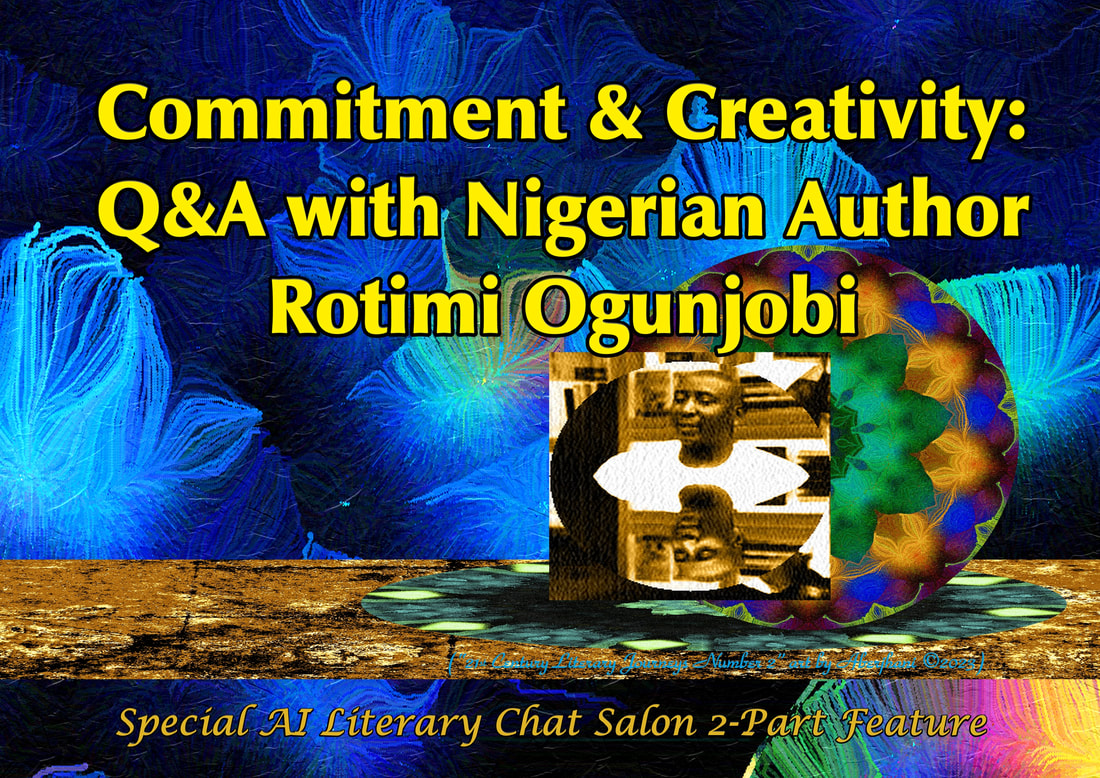
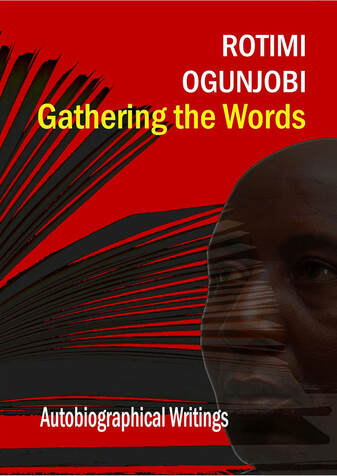
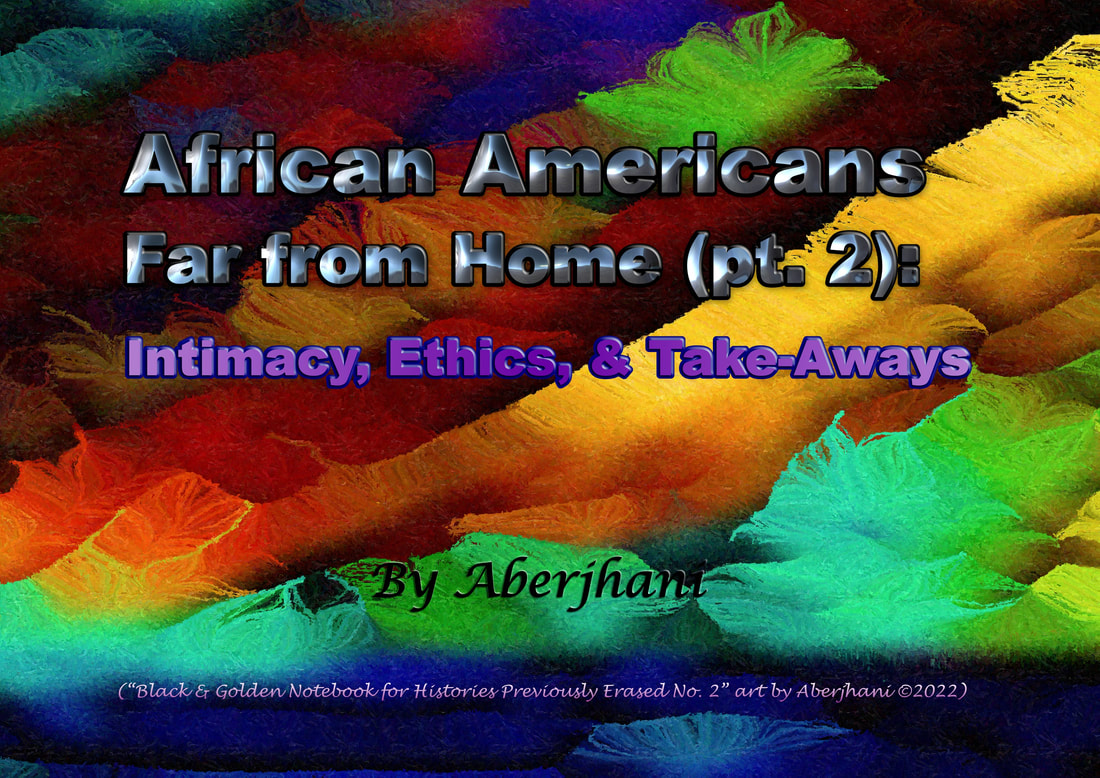
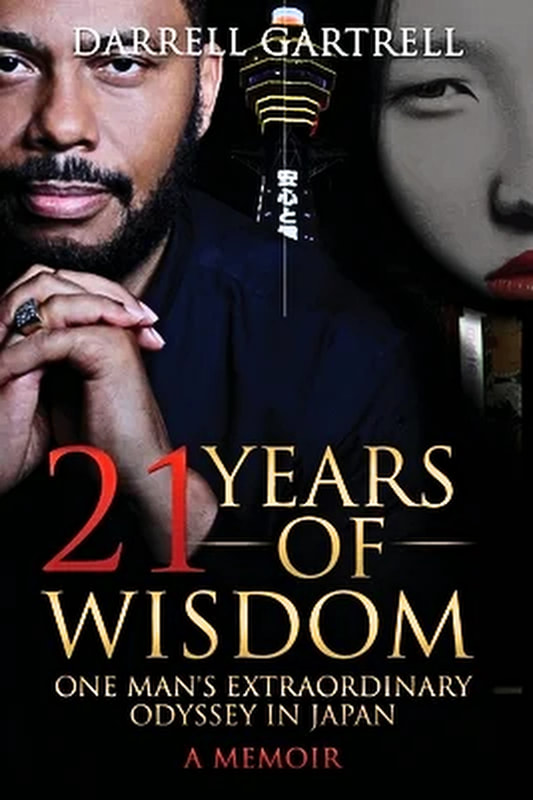
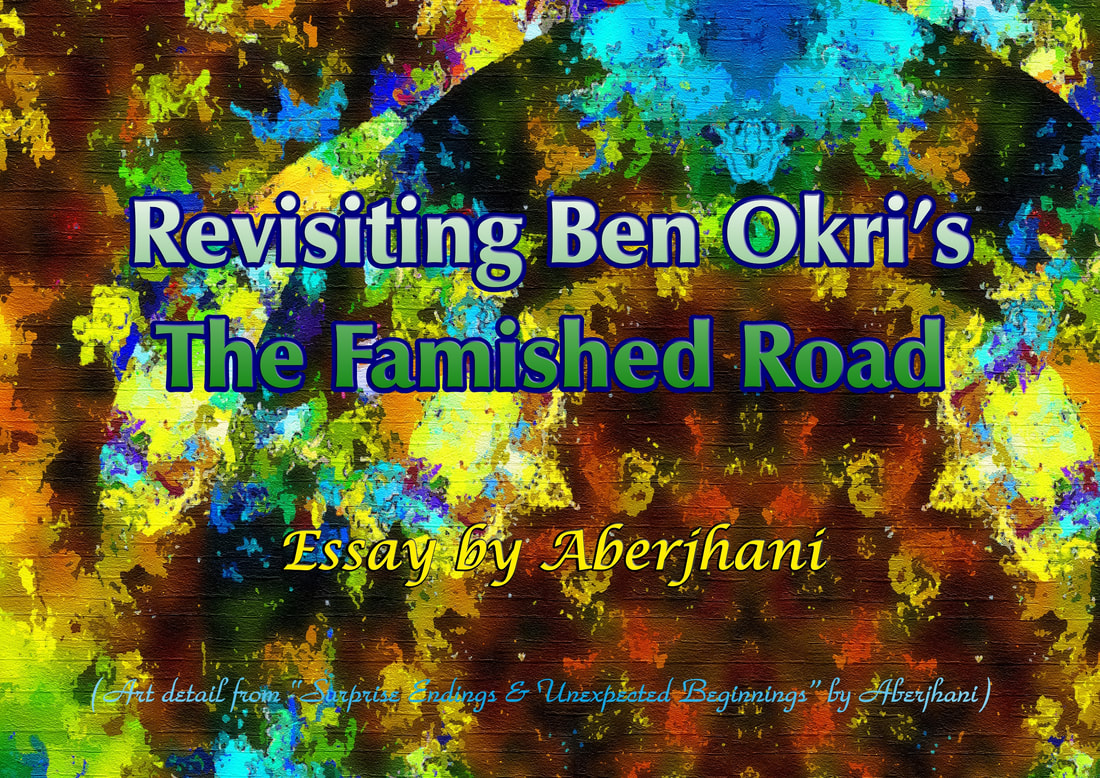
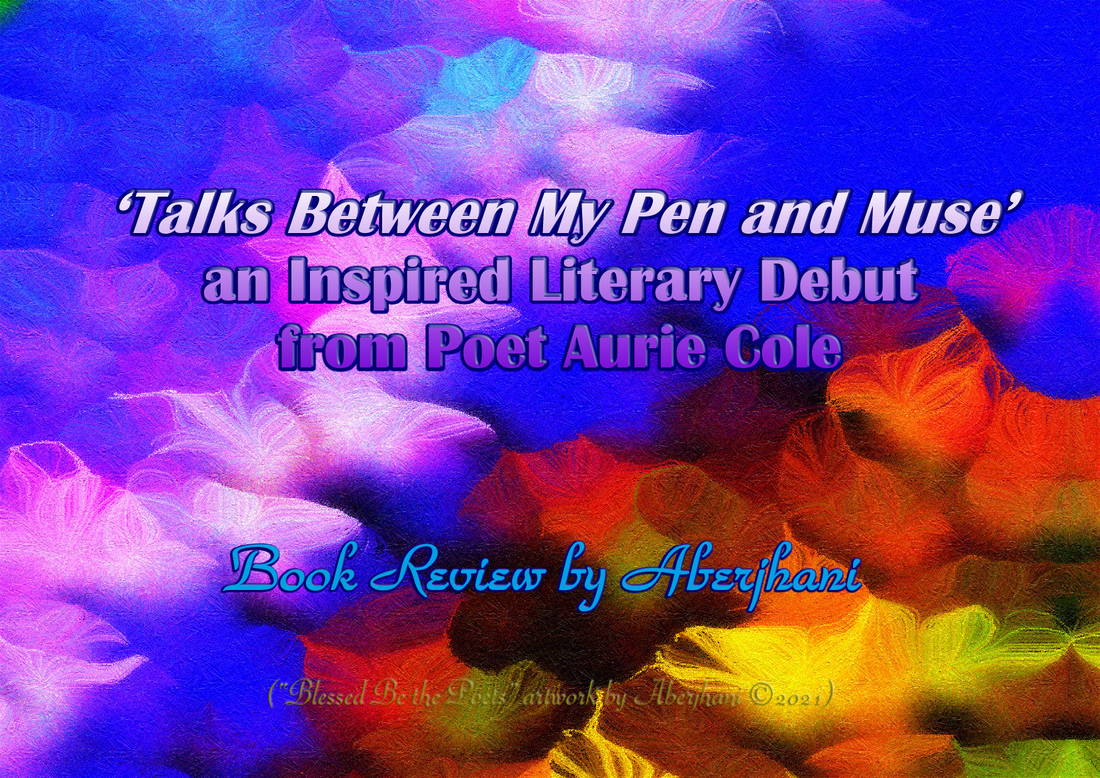
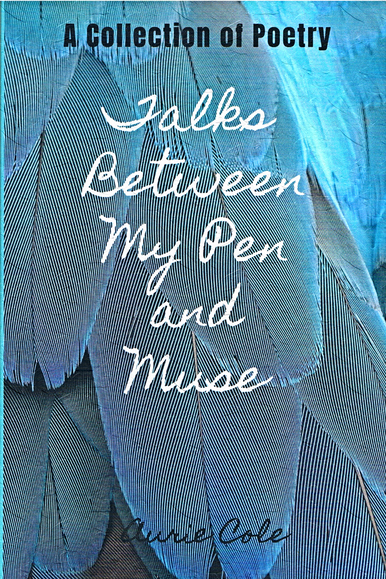
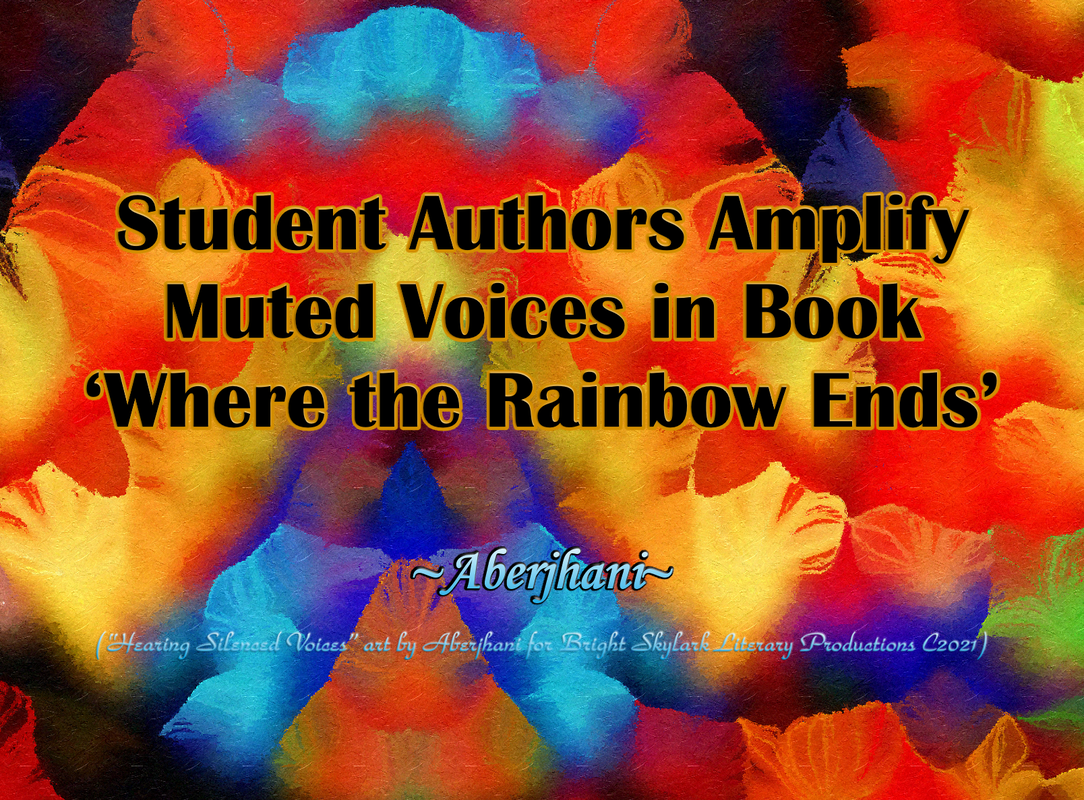
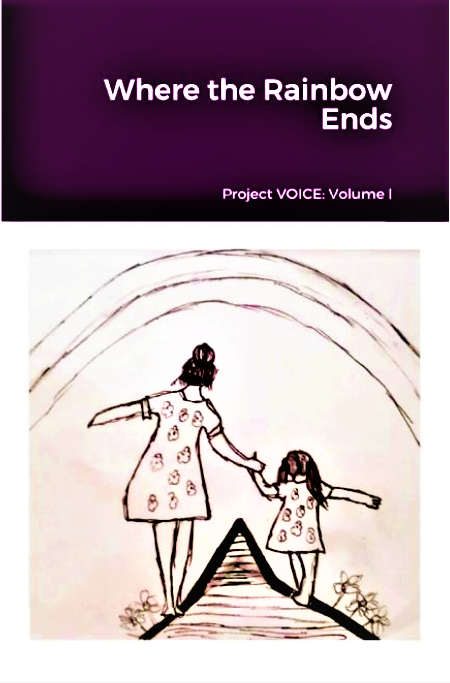
 RSS Feed
RSS Feed